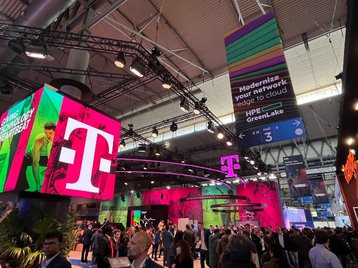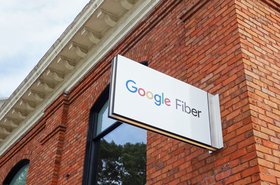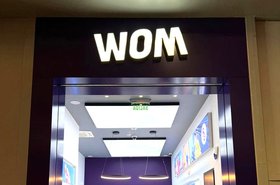T-Mobile’s parent company, Deutsche Telekom (DT), has increased its guidance for the full 2025 financial year, as the carrier’s CEO said it’s working with Nvidia and Brookfield to build an AI data center in Germany.
DT reported its second quarter earnings, with net revenue increasing one percent year-on-year (YoY) to €28.6 billion ($33.31bn), though stated this figure would have been higher (four percent), but for stripping out exchange rates.
Results were better than the analyst’s expectations. This has led DT to increase its Adjusted EBITDA AL to more than €45 billion ($52.5 billion), up from the previous figure of around €44.2bn ($51.4bn).
Service revenue grew by four percent to €24.4bn ($28.38bn), while Adjusted EBITDA AL increased in the same period by five percent in organic terms to €11.0bn ($12.8bn).
The telco highlighted strong growth in Europe and across the pond in the US.
“We are again seeing sustained strong growth on both sides of the Atlantic throughout the second quarter,” says Tim Höttges, CEO of Deutsche Telekom. “Deutsche Telekom continues to set the pace in the industry.”
T-Mobile reported last month that service revenue had grown by six percent to $17.4bn for the quarter, while the carrier added more than 830,000 postpaid phone net customer additions, the highest in the company’s history.
During the quarter, T-Mobile also closed its $4.4bn acquisition of UScellular’s wireless operations, plus its fiber JV acquisition of fiber-to-the-home provider Metronet.
Revenue in the company’s home market of Germany was down slightly for the quarter by 1.3 percent to €6.2bn ($7.22bn), but up in Europe overall by 1.4 percent to €3.1bn ($3.61bn).
The company said it was the 30th successive quarter for revenue growth in Europe, with Poland highlighted as one of the stronger markets.
In Germany, the carrier increased its total mobile subscribers to 71 million, a jump of 1.9 percent YoY.
DT partnering with Nvidia, Brookfield on AI data center
In June, the company, along with Nvidia, announced plans to build the world’s first industrial AI cloud for European manufacturers in Germany. As such, the company said at the time that this paves the way for the AI Gigafactory.
Providing an update on this during the call, Höttges said DT wants to be one of the “pioneers” in this area.
“Well, we are very much interested in building this gigabit factory. As I said in my talk, we are now building this factory, or actually, we will start building it in 2026 using Nvidia chips,” said Höttges.
“And such chips can already be used to test AI functionalities, and later on, they can be used for the gigabit factory. Secondly, with the gigabit factory, we want to be part of the European tender. I think there are almost 100 applicants, and we are one of them.”
He said the company is working with Nvidia and investment firm Brookfield for its gigabit factory project, which looks set to be in the state of North Rhine-Westphalia.
“We are considering a site in the state of Northern Westphalia, and we are in talks with various parties, including RWE, about possible sites where approval procedures have already been finalized for electricity and water, but a final decision has not yet been made.”
He added that such plans could change, though the company is committed to building an AI data center.
In 2023, Höttges suggested the telco was interested in building up its data center portfolio in Germany and Europe, saying the business was “exploding” yet noted a “shortage” due to demand for AI applications.”
Digital Transformation Capital Partners (DTCP), which was spun out of Deutsche Telekom in 2015 but retains close ties to the telco, owns a majority stake in German data center operator Maincubes. It also took a stake in Irish data center firm Atlantic Hub.
AI driving efficiencies
During the company’s earnings call, DT also touched on the opportunities around AI, noting that the technology has helped the company increase efficiency within the business.
Höttges notes that more than 30 percent of the carrier’s German workforce already uses the company’s AI-powered knowledge tool AskTEA, while AI now creates about 10 percent of DT’s software code.
“We use collaborative AI systems in our networks known as AgenTeq networks to prevent errors… and ensure connection stability around the clock. And the Frac Magenta or Ask Magenta chat and voice service solved 1,600,000 customer requests in the first half of the year, equivalent to around 133,000 call center hours,” he said.
“By 2027, Deutsche Telekom will save around €800 million ($931m) outside of the US through artificial intelligence and the targeted use of data. And we’re on track to achieve that.”
He added that the launch of DT’s AI smartphone in Europe is also “imminent.”
Read the orginal article: https://www.datacenterdynamics.com/en/news/deutsche-telekom-raises-2025-guidance-working-with-nvidia-brookfield-on-ai-data-center/









